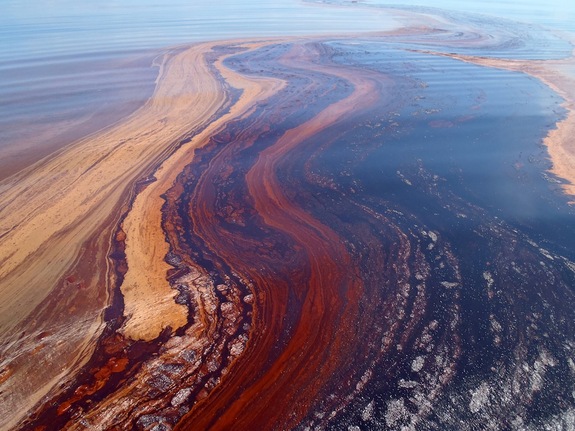Bacteria Sucked Up 200,000 Tons of Oil After BP Spill

Naturally occurring bacteria gobbled up at least 200,000 tons of oil and natural gas that spewed into the Gulf following the BP Deepwater Horizon spill, a new study shows.
Researcher John Kessler, of the University of Rochester, said the hydrocarbon-eating bacteria removed the majority of the oil and gas trapped in underwater layers more than a half-mile below the surface. But the bacteria's appetite seemed to die down five months after the April 2010 explosion that set off the environmental disaster, Kessler and his team found.
"It is unclear if this indicates that this great feast was over by this time or if the microorganisms were simply taking a break before they start on dessert and coffee" he said in a statement. "Our results suggest that some (about 40 percent) of the released hydrocarbons that once populated these layers still remained in the Gulf post September 2010, so food was available for the feast to continue at some later time. But the location of those substances and whether they were biochemically transformed is unknown."
The researchers measured the deeds of these methane-munching microbes by looking at oxygen levels throughout the water column. That's because these microbes use oxygen to "breathe." [Deepwater Horizon: Images of an Impact]
"When bacteria consume oil and gas, they use up oxygen and release carbon dioxide, just as humans do when we breathe," graduate research assistant Mengran Du at Texas A&M University said in a statement. "When bacteria die and decompose, that uses up still more oxygen. Both these processes remove oxygen from the water." The team used these oxygen numbers to calculate the amount of oil and gas removed by the microbes and at what rate they were consuming it.
The results were published this week in the journal Environmental Science and Technology. The work was funded by the National Science Foundation, along with the National Oceanic and Atmospheric Administration, the Sloan Foundation, BP/the Gulf of Mexico Research Initiative, and the Chinese Scholarship Council.
Follow LiveScience on Twitter @livescience. We're also on Facebook & Google+.
Sign up for the Live Science daily newsletter now
Get the world’s most fascinating discoveries delivered straight to your inbox.










